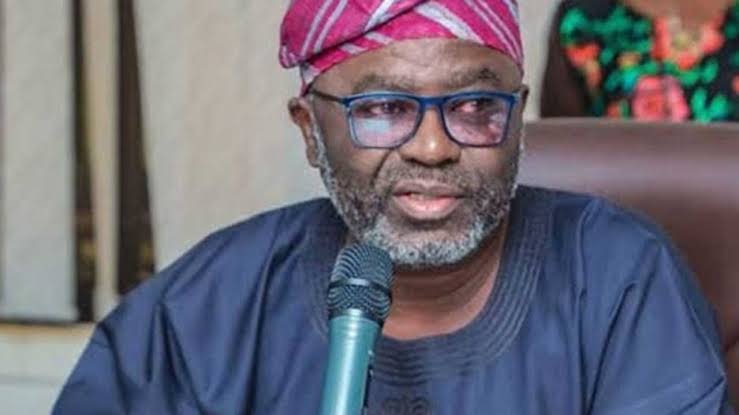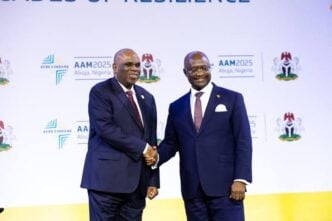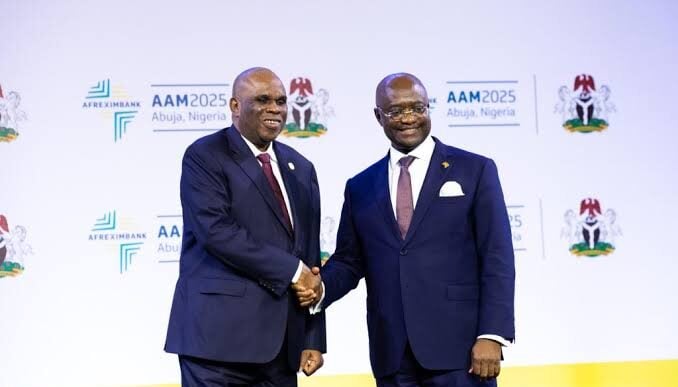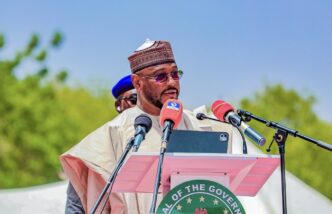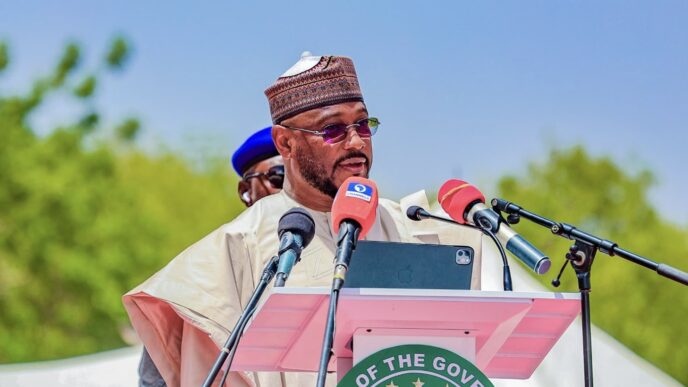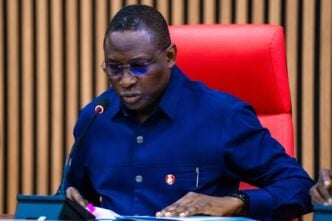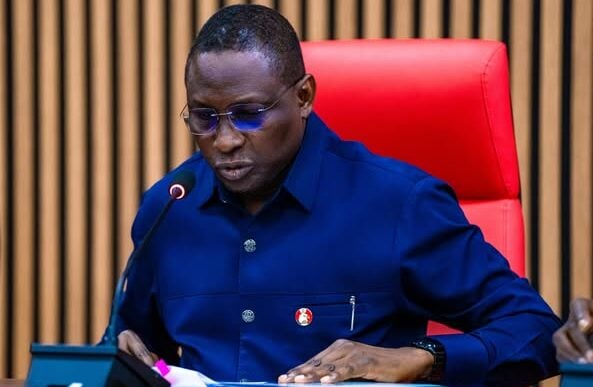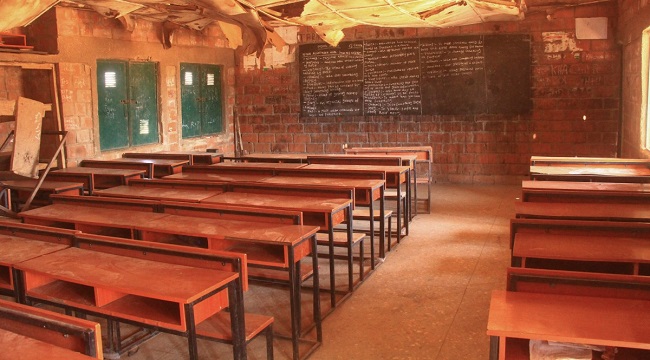Charles Akinola
BY REMI LADIGBOLU
The South-West Development Commission has landed with both a bold vision and a heavy burden of history.
At its inaugural board meeting in Ibadan on September 1 and 2, 2025, the managing director, Charles Akinola, unveiled what he called the “One Bloc Development Agenda.” It was a call for the six states of the South-West to pool resources, speak with one voice, and pursue development projects that cut across boundaries in agriculture, technology, transport, power, and human capital.
In his own words, rather than chasing fragmented projects in isolation, the new agenda would allow the region to coordinate efforts and deliver prosperity that is shared across state lines.
Advertisement
But almost immediately, the reaction from the people showed that there would be no free pass. Voices of excitement mixed with deep distrust. The idea of regional unity resonated strongly, but the chorus that rose in response was blunt: the time for words is over, the region demands visible projects and real impact.
On the commission’s official X post announcing the plan, people poured out their expectations. Some demanded a massive freight rail line linking Apapa Port through Abeokuta, Ibadan, Akure, and Ado-Ekiti. One user called it a game-changer for trade and industry. Others urged the development of coastal and inland waterways, proposing large passenger ships between Lagos, Ogun and Ondo, and even inland routes to open up Oyo, Osun and Ekiti. There were calls for a shared energy grid to power the region, and several people reminded the Commission to avoid duplication of state projects.
One comment summed it up sharply: focus on a few big-ticket projects, deliver them to the end, and do not attempt everything at once.
Advertisement
Yet even beneath these constructive suggestions, scepticism ran deep. Many pointed to the failures of past commissions in Nigeria. The Niger Delta Development Commission has for decades consumed billions of naira but remains widely regarded as having failed to transform the lives of the people it was created to serve. Before it, the Oil Mineral Producing Areas Development Commission collapsed in scandal after its managing director, Chief Eric Opia, fled the country to escape prosecution.
To many Nigerians, commissions have become synonymous with wasted funds, duplication, and corruption. That bitter memory haunts every new institution, and the SWDC must prove that it is not another funnel for money to vanish.
Projects must be started and finished. Funds must not disappear into the shadows. Officials must not vanish into exile. Nigeria’s history is littered with commissions that began with noise and ended with disgrace. If the SWDC wishes to survive, it must work twice as hard to build trust.
The south-west is not coming to this empty-handed. It has a powerful history to draw upon. The old Western Region government under Chief Obafemi Awolowo remains a living reference point. With far fewer resources than today, that government built Cocoa House, Liberty Stadium, the first regional broadcasting system in Africa, and introduced free education and mass literacy programmes that transformed the region. These achievements still stand decades later, proof of what purposeful leadership can achieve. People expect the SWDC to do no less, and perhaps to do more.
Advertisement
That expectation is daunting, but it also provides a clear path forward. The Commission must begin with visible, transformative projects that bind the region together. Three priorities have emerged as the foundation.
First, a regional freight and passenger rail system linking Apapa Port in Lagos to Abeokuta, Ibadan, Osogbo, Akure and Ado-Ekiti. This would not only ease congestion at Apapa but also reduce the cost of moving farm produce and manufactured goods while spurring industries along the route. It would integrate the economies of all six states and attract investment on a scale the region has not seen in decades.
Second, a regional energy grid drawing from solar, gas, and hydropower across the states. Nothing cripples productivity more than unreliable electricity, and pooling resources can help the region achieve stable power faster than if each state worked alone. Such a grid could light up factories, tech hubs, farms, and schools, unleashing human potential across Yorubaland.
Third, the development of coastal and inland water transport. The natural highway along the Lagos–Ogun–Ondo coastline could host ferries and cargo ships linking Lagos, Ijebu Waterside, Ore and Ondo, while inland waterways could connect Oyo, Osun and Ekiti. This would decongest roads, boost tourism, and open new markets for traders and farmers.
Advertisement
These three projects, rail, power, and waterways, are strategic, achievable, and mutually reinforcing. Together, they can serve as the backbone of the region’s industrialisation, agricultural revival, and tourism growth. If the commission delivers on them, it will have set a foundation that no government or administration can ignore.
But delivery alone is not enough. Nigerians are not content with mere announcements. They want to see transparency, step by step. The SWDC will have to create a system where every citizen can track projects in real time, from conception to completion. Budgets, contractors, timelines, and progress updates must be open to the public. Civil society, journalists, and independent monitors should be invited to keep watch. By doing so, the commission will not only silence sceptics but also prove that it is serious about accountability.
Advertisement
The reaction from Yoruba leaders shows support but also underlines this demand for delivery. The Olowo of Owo, Oba Ajibade Gbadegesin Ogunoye II, praised Akinola’s appointment as a square peg in a square hole, calling him a man of Omoluabi values, but he urged the Commission to prioritise youth empowerment, agriculture, and security infrastructure. Former Ekiti State governor, Dr. Kayode Fayemi, called the appointment of Akinola and Chairman, Olubunmi Adetunmbi, “inspired,” pointing to their intellectual preparedness and ties to Yoruba institutions like Afenifere and the Yoruba Academy.
Business leader, Segun Aina, chairman of the Osun Development Association and president of the African Fintech Network, spoke in terms of legacy. We have an enormous opportunity to create a legacy, he said. The foundation must be strong so that the building will last. He referenced a $600 billion regional GDP target and smarter infrastructure. Wale Adebayo, former chairman of IPAC Osun, placed the challenge in cultural terms. We have a responsibility to uphold the credibility and identity of Yorubaland, he said. Our region is not just a geopolitical zone; it is a cultural civilisation and an economic powerhouse.
Advertisement
The people themselves, commenting online, put it even more starkly. If Awolowo could build Cocoa House with modest means, they asked, why should today’s Commission not surpass that vision? The bar has been raised and the region is watching.
This is the burden and the promise of the South-West Development Commission. If it fails, it will reinforce the nationwide cynicism that commissions are nothing but channels for siphoning public funds. If it succeeds, it will ignite a new era of bold, innovative leadership and restore the South-West to the front line of Nigeria’s development. The difference between the two outcomes will rest not on slogans or ceremonies but on transparency, and delivery.
Advertisement
The mantle is heavy, but the opportunity is vast. The South-West does not need another story of development without results. It needs rails that move goods, lights that stay on, waterways that carry trade, and leadership that does not squander trust. If the commission can build that, it will prove that regional cooperation is not just possible but powerful. If it cannot, then history will quickly fold it into the long list of wasted chances.
The commission has no choice but to deliver.
Ladigbolu is a Lagos-based journalist
Views expressed by contributors are strictly personal and not of TheCable.
